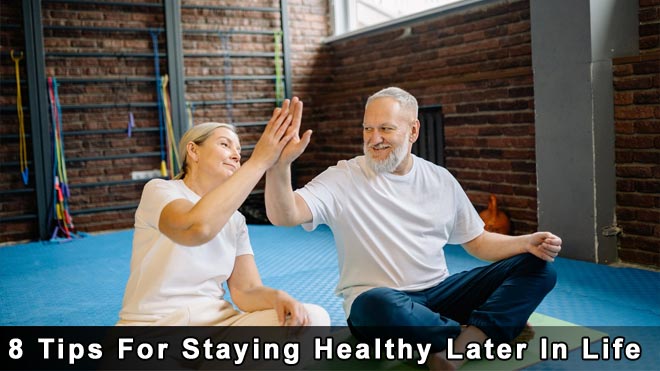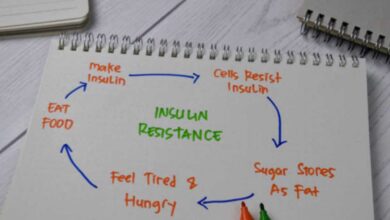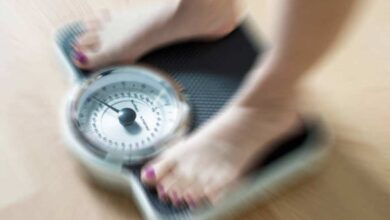Making an effort to maintain your health as you age will mean that you can continue to enjoy the life that you have built for yourself over the years, and it doesn’t mean making huge sacrifices.
Most of the things that will keep your mind and body healthy later in life are things that will contribute to your overall wellbeing and give you greater satisfaction and enjoyment from life.
1. Lower your stress levels
Stress is known to be a contributing factor to heart disease, and it can also cause premature aging and the appearance of wrinkles.
It’s also something that can be quite prevalent as we get older because we have to take care of spouses as they age, deal with our own health concerns or cope with the adjustments that come with retirements, such as decreased income and finding a sense of purpose.
If you are stressed for a specific reason, for example, as a result of a disability, then it’s important to address that specific issue with the help of a professional if you can. NDIS participants can contact their NDIS support coordination provider for recommendations covered by this program..
In general, some ways that you can lower stress are:
- Regularly exercising. If you struggle with mobility, your doctor will be able to advise you on the types of exercise that you can do. It doesn’t have to be a strenuous exercise to have a positive impact.
- This is great at any age and can help you to manage difficult situations in your life more easily.
- Assertiveness training. A lot of stress as we age can come with the feeling that we have lost some power. Learning how to confidently communicate our needs can go a long way to help with this.
Some people also find that having a pet like a cat or a dog to take care of can lower stress. However, you should consider the time and energy required to look after a pet before making this commitment.
Read Also:
2. Take up exercise
Not only does exercising regularly decrease your risk of cancer and heart disease, but it will also help you to maintain your mobility longer, improve your quality of sleep and have a positive impact on your mood.
It’s a good idea to do a combination of aerobic exercise (like walking, hiking, dancing, cycling, and swimming) that increases your heart rate and strength training on a regular basis. Exercise that involves elements of balance, such as yoga or tai chi, is also beneficial.
It’s OK to start small, because if you aren’t exercising at all, then any additional exercise will do you good.
Read also: How Best Posture Corrector Contribute to an Upright Posture
3. Drink and Smoke Less
This is probably the most important health tip!
Many people think that there is ‘no point in giving up smoking or smoking as you age, but it will positively impact your health.
According to WHO:
- Within 20 minutes of stopping smoking, your heart rate and blood pressure will drop.
- After 2-12 weeks, your lung function increases, and your circulation improves.
- Within 1-9 months, coughing and shortness of breath decrease.
- Within just 1 year, your risk of coronary heart disease is half that of smokers.
- Within 5-10 years, your risk of developing cancer falls dramatically.
Moderating your drinking or stopping drinking will also have benefits to your health and wellbeing:
- Your skin will look better (less broken capillaries, inflammation, jaundice, and improved collagen levels, which helps your skin to stay firm).
- You will sleep better. Although it can feel as though alcohol is helping you to sleep, it actually interrupts your natural sleep patterns meaning that your sleep quality isn’t as good.
- A healthier weight. Alcohol is calorie-dense, and it also impacts your ability to absorb nutrients properly, which means that you can end up eating more to compensate.
- Better mental health. Alcohol is a depressant, which is exactly what it sounds like. People who drink regularly tend to experience higher levels of depression and anxiety than those who don’t.
- Lower risk of cancer. Alcohol can increase your risk of developing some types of cancers,including; breast, colon, rectal, esophageal, liver, and throat.
- A healthier heart. Heavy drinkers are much more likely to suffer heart problems than those who don’t drink as much.
Finally, stopping drinking or lowering your alcohol consumption can improve memory function, as alcohol has been shown to shrink the hippocampus.
Read Also: 8 Ways For Supporting Loved Ones in Mental Health Crisis
4. Eat a healthy diet
You are what you eat!
Eating a diet that is rich in fruits and vegetables (frozen and canned are fine, as well as fresh), oily fish, lean protein such as beans, and whole-grain cereals will help you to function at your best.
5. Maintain a community
One of the biggest risks to health among the older population is loneliness. As people move away and become less mobile, it can be difficult to maintain a sense of community.
Many older people find an improved quality of life by moving to an independent living community such as Frontier Senior Living, where they can live among like-minded people with similar interests and outlooks and be surrounded by staff who actively facilitate social activities.
6. Find new hobbies
Hobbies are important because not only will they give you a new skill; they can actually give you social opportunities and a sense of purpose.
Engaging in a new hobby gives you the opportunity to get involved with a whole new community of people, whether that’s online or in real life.
Hobbies also teach us to be more patient as we work to acquire our new skills, and they can help to keep our minds sharp by keeping them working as we try to solve problems and get better at our hobby of choice.
If you can find the right hobby for you, you’ll find that it can eradicate boredom and increase your confidence and self-esteem.
7. Focus on sleep
In this publication, sleep deprivation is terrible for your brain. Therefore getting a good night’s sleep is crucial for your physical and mental health. Sleep helps to improve mood and also gives your body the opportunity to heal.
It will also help to improve your focus and concentration, as well as lowering your risk of illness.
8. Get check-ups
Seeing a doctor regularly means that any health concerns can be picked up as early as possible when treatment is often easier and more effective.
Speak with your physician about any screenings that you should be attending, and make sure that you go!








